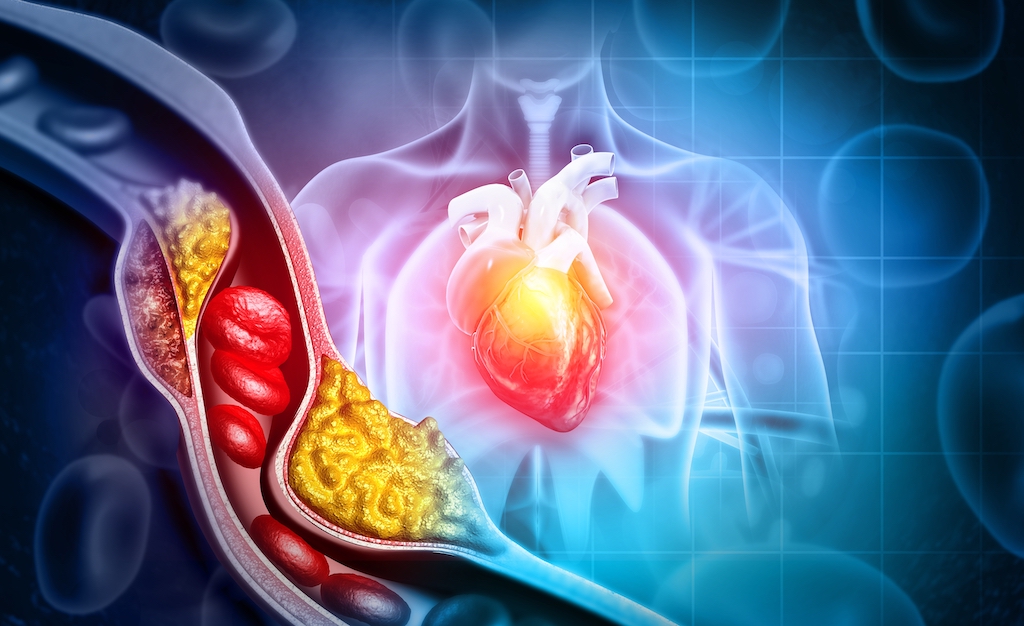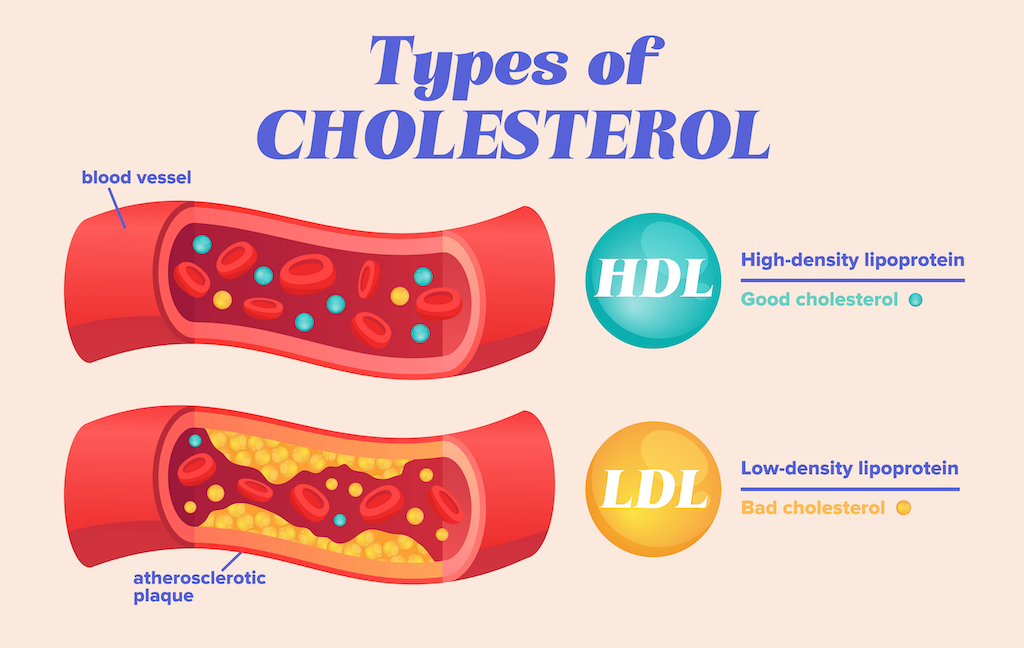 Photo Credit: Shutterstock
Photo Credit: Shutterstock
There is a chance that you've heard the word cholesterol countless times. Whether you were told that your cholesterol is high, or you assume it isn't good, there are ways to improve it. But, have you ever taken a second to understand what your doctor means when they talk about your cholesterol? Here, Haute MD expert Cardiologist Dr. Ryan Houk of Naples Heart Rhythm Specialists and his wife, Internal Medicine Physician, Dr. Deborah Houk explain cholesterol in detail.
What is cholesterol?
Cholesterol is a fatty substance found in foods and in the body. You’ve probably heard of the different types of cholesterol, which include HDL (high-density lipoprotein), LDL (low-density lipoprotein), and TG’s (triglycerides), which contribute to cholesterol levels. Checking your cholesterol levels is important because when levels are high, it can put you at higher risk for heart attack and stroke.
Which foods have high levels of cholesterol in them?
Some foods that you eat have higher levels of cholesterol in them. These foods are primarily animal products like meat and dairy products like eggs, cheese, and milk. Often, patients can improve control of their cholesterol levels by avoiding foods that are high in dietary cholesterol.
How do you get your cholesterol checked?
To get your cholesterol checked, your doctor will order a complete cholesterol test, which is a blood test that measures the different types of cholesterol in the body. This test is often referred to as a lipid panel or a lipid profile. This is the test that tells the doctor what each of your cholesterol numbers are, specifically, doctors look at the following numbers:
- TC - Total Cholesterol
- HDL - High-density Lipoprotein
- LDL - Low-density Lipoprotein
- TG - Triglycerides
 Photo Credit: Shutterstock
Photo Credit: Shutterstock
What is the difference between “good” and “bad” cholesterol?
We used to think there were two types of cholesterol, good cholesterol, and bad cholesterol. The good cholesterol described the HDL or high-density lipoprotein cholesterol, while the bad cholesterol described the LDL or low-density lipoprotein cholesterol. HDL was considered good because it helps carry the LDL out of the bloodstream, and in early studies, higher HDL levels were thought to be cardio-protective (protect the heart) against heart attack and stroke.
However, there was a recent study in the Journal of The American College of Cardiology that showed that higher HDL levels may not provide as much additional cardiovascular benefit to patients as we once thought. We still have a lot to learn of course, but the most important thing is to talk to your doctor, make lifestyle modifications, and get treated if your cholesterol levels are high.
What are the ideal cholesterol numbers?
For a normal person, we often focus on LDL levels. Typically, an LDL of less than 100 is the goal. For patients at higher risk, like those with diabetes, doctors may want to be more strict and reach for an LDL goal of less than 70, and in some cases like for patients with vascular disease or coronary artery disease, doctors may shoot for an LDL of less than 55 to be even more aggressive.
As a rough guideline, the typical cholesterol goals are as follows:
- TC < 200
- LDL < 100
- HDL > 60
- TG < 150
However, it’s important to note that each patient is different, with a different past medical history, family history, and clinical situation, which may cause your doctor to recommend more strict or more lenient goals.
How can you fix your cholesterol levels?
Talk to your doctor. Your doctor will take your medical history, your habits, and your cholesterol levels into account when coming up with a plan to fix them. Most physicians rely on the Atherosclerotic Cardiovascular Disease (ASCVD) calculator to estimate a patient's 10-year risk of heart attack or stroke. The calculator takes into account a patient's age, sex, race, blood pressure, cholesterol levels (TC, HDL, & LDL), smoking status, diabetes status, and whether or not they are on medication for high blood pressure, high cholesterol, or aspirin therapy. Once the patient's risk for ASCVD is determined, doctors may recommend lifestyle changes, dietary changes, and medications to target cholesterol like Statins, blood pressure control, diabetes control, and tobacco cessation, if applicable. Physicians are also able to forecast what effect each of these interventions will have on your health.
Why is it important to control your cholesterol levels?
The problem with high cholesterol levels is cardiovascular disease, which includes heart attack, stroke, carotid artery disease, and peripheral arterial disease. Basically, the excess cholesterol builds up and clogs the arteries of the body, including those in your heart and brain, leading to heart attacks, strokes, and other cardiovascular issues.
If you are looking to check your cholesterol levels, inquire to make an appointment today online or via telephone at 239-263-0849.






















